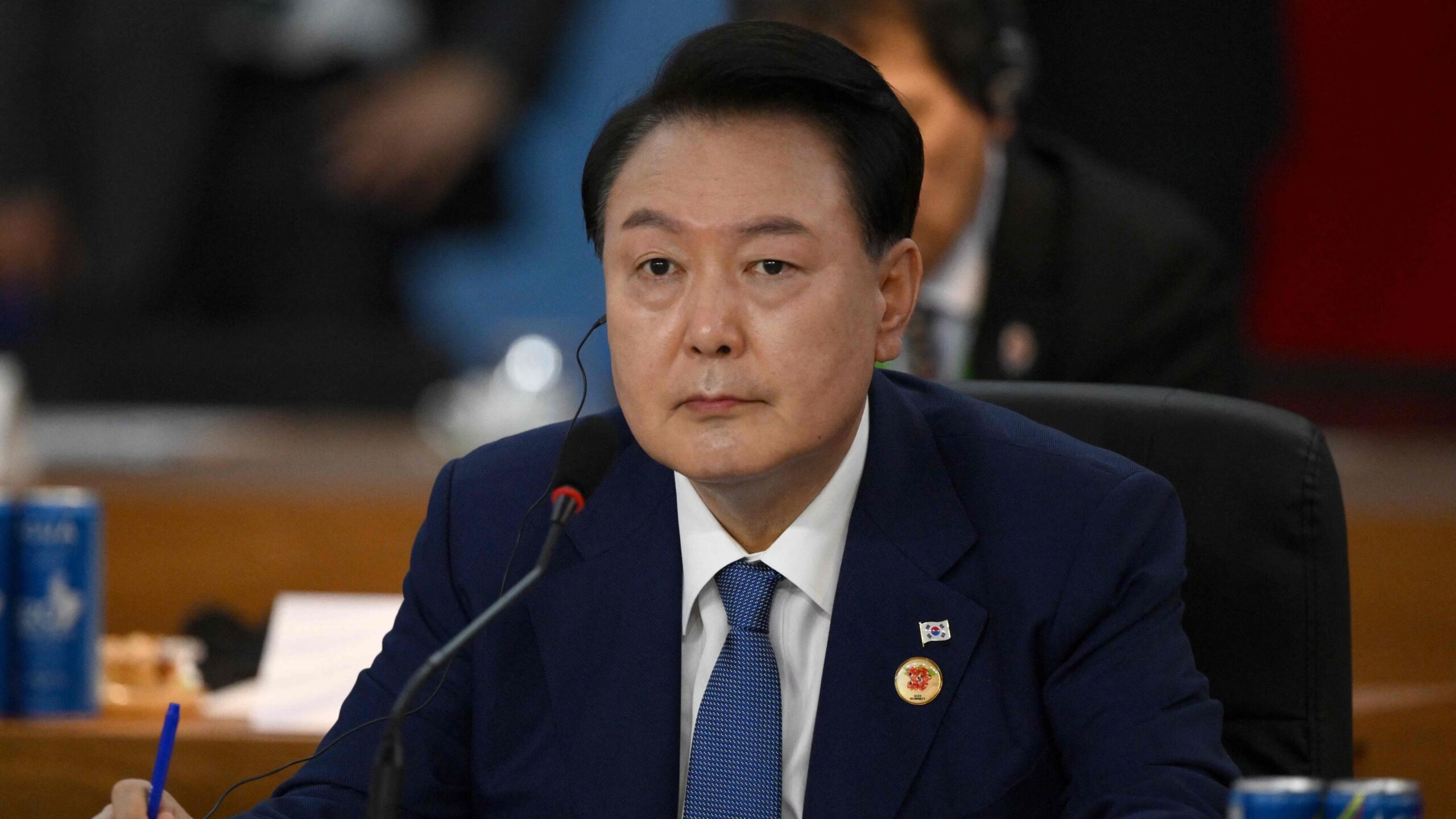
Former South Korean President Yoon Suk Yeol greets supporters in front of the Seoul Central District Court on Monday before hearing the indictment against him. He is currently charged with insurrection for his 18-day declaration of martial law last December. Yoon, wearing a dark Dobbs suit and poppy red tie, completely rejected every single charge laid against him. He argued his actions were not a power grab to take over the state. Rather, he justified them as needed steps to quell a huge national disorder.
Yoon has been indicted on more serious charges for allegedly masterminding an insurrection. Depending on the facts, this offense could lead to life in prison or worse, the death penalty. On December 3, he announced a martial law, stunning the country. This decision would soon plunge South Korea into months of turmoil with far-reaching effects on society, the economy and foreign policy.
Yoon’s Defense and Reaction to the Charges
Seeing this, Yoon’s martial law declaration only lasted about six hours, as he was forced to resign almost instantly under mounting backlash. Yet the Constitutional Court ultimately decided that what he did was unconstitutional, spelling his removal from office. Critics claim that Yoon intentionally sought to weaken state institutions. They particularly emphasize his declaration of martial law, arguing it did not have adequate legal basis for striking at parliament.
In court, Yoon spoke passionately about why he felt compelled to act. He claimed that his declaration was an act to meet a crisis, aimed at creating a “peaceful ‘message martial law’” to restore order. He stated, “Martial law is not a coup d’etat. This was a peaceful ‘message martial law’ to the nation… I knew this martial law would end within half-a-day, a day.” He fights back with an unapologetic defense of his position that lays bare the fundamental misunderstanding of his detractors. They see his exercise of authority as a dangerous overreach.
As the trial begins, it has huge implications for South Korea. After a summer and fall of activity that has aligned the credibility and ethics of public leadership into question. Legal implications While the immediate impact is felt in Alabama, this verdict has broader implications. It will decide how other similar cases are handled under the nation’s legal framework.
The SS49 martial law declaration sent shockwaves throughout South Korean society. This left millions of their constituents hung out to dry, sparking an outpouring of anger and cries for accountability from the soon-to-be former president. Yoon’s short-lived martial law initiative was met with public outcry and concerns about authoritarianism. Needless to say, international observers are paying very close attention to the developments occurring in real time.
The court’s proceedings will likely explore various aspects of Yoon’s governance and the conditions leading up to his controversial decision. Legal experts agree that Yoon’s martial law constitutionality will be at the heart of the trial. They’ll consider whether he committed an insurrection against the government through his actions.
As Yoon faces these serious charges, South Korea finds itself at a crossroads, grappling with questions of democratic integrity and leadership accountability. The eventual outcome of this trial will determine the course of Yoon’s future. More importantly, it will shape the public’s perception of governance in South Korea for decades to come.
Author’s Opinion
The trial of Yoon Suk Yeol represents a pivotal moment in South Korea’s journey toward consolidating democratic integrity. The outcome will not only affect Yoon’s future but will also have lasting repercussions for the country’s political landscape and global image. This case highlights the fragile balance between executive power and democratic norms, and the court’s decision will set an important precedent for future leaders in South Korea and beyond.
Featured image credit: Heute
Follow us for more breaking news on DMR
